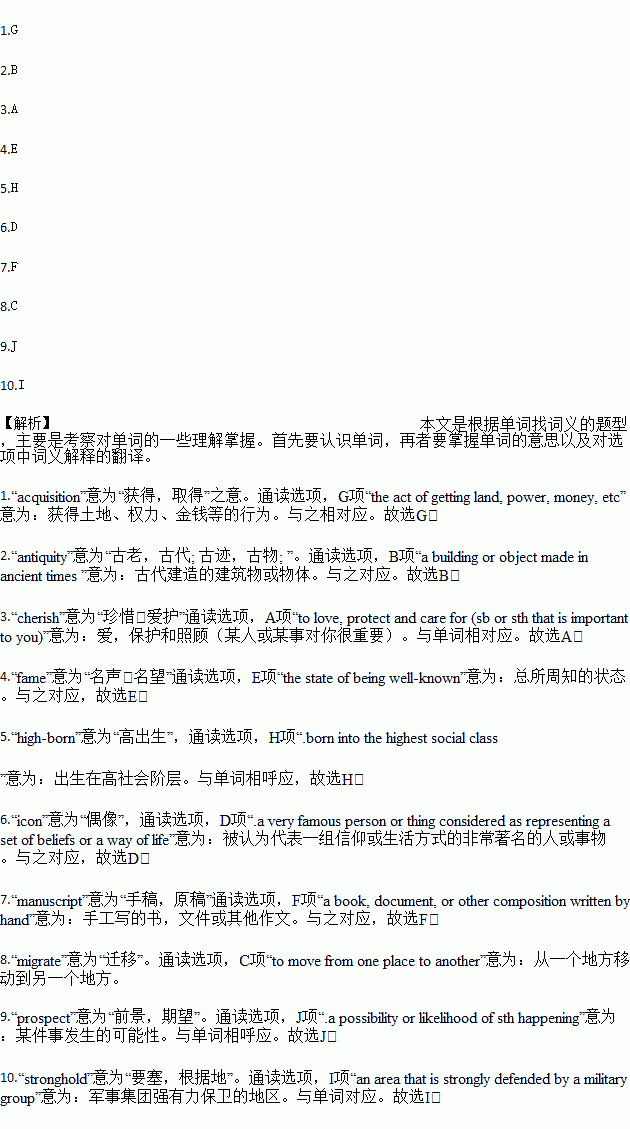题目内容
A.to love, protect and care for (sb or sth that is important to you)
B.a building or object made in ancient times
C.to move from one place to another
D.a very famous person or thing considered as representing a set of beliefs or a way of life
E.the state of being well-known
F.a book, document, or other composition written by hand
G.the act of getting land, power, money, etc
H.born into the highest social class
I.an area that is strongly defended by a military group
J.a possibility or likelihood of sth happening
1.acquisition
2.antiquity
3.cherish
4.fame
5.high-born
6.icon
7.manuscript
8.migrate
9.prospect
10.stronghold
练习册系列答案
相关题目


 ogy Sydney, made From Sydney With Love about two Indian students falling in love with some of the 8. (building) of Sydney University. By 2014, the number of Indian students in Australia was rising again.
ogy Sydney, made From Sydney With Love about two Indian students falling in love with some of the 8. (building) of Sydney University. By 2014, the number of Indian students in Australia was rising again.